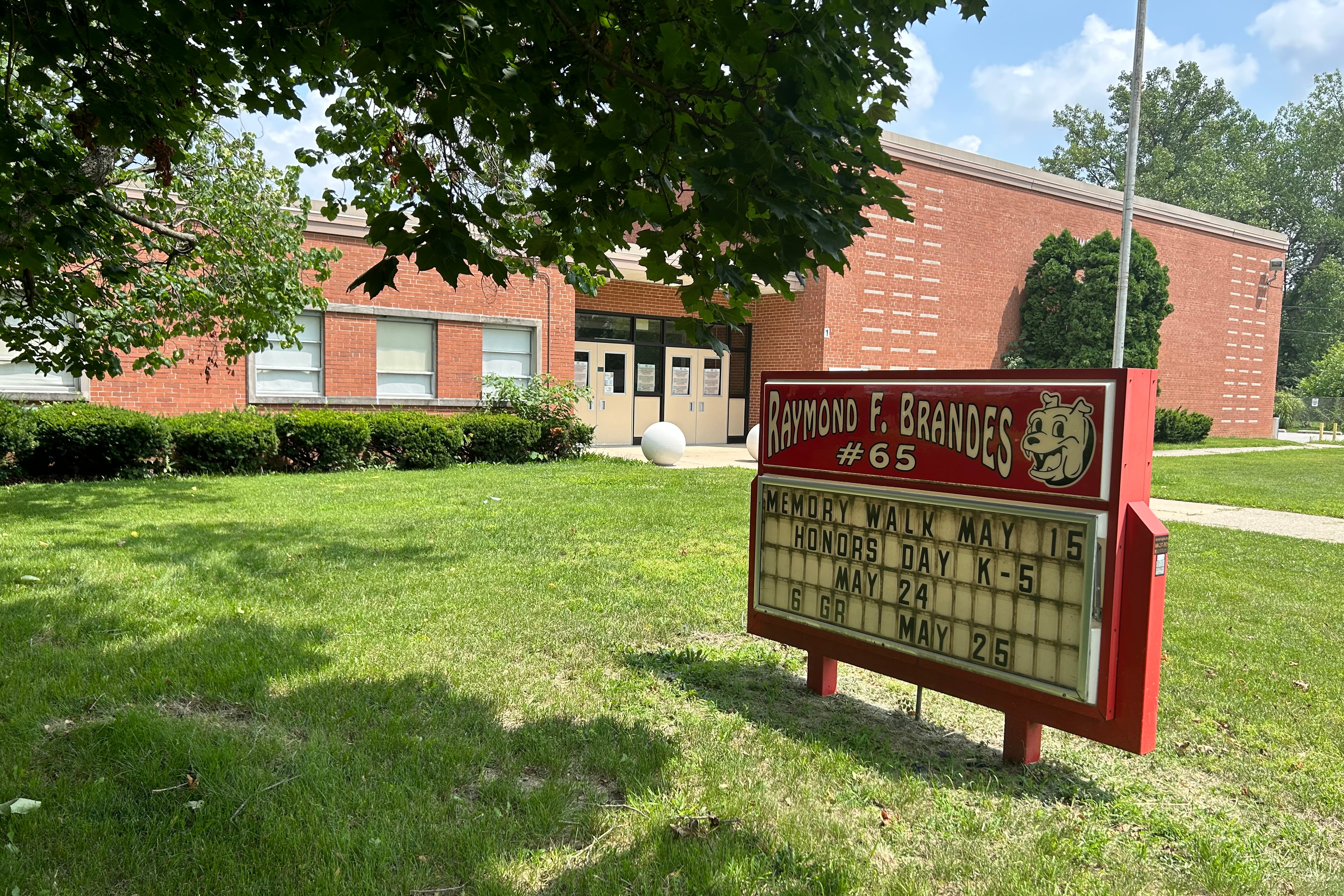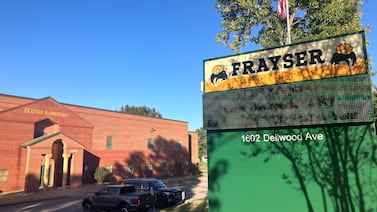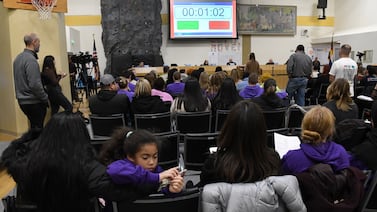Sign up for Chalkbeat Indiana’s free daily newsletter to keep up with Indianapolis Public Schools, Marion County’s township districts, and statewide education news.
Indianapolis Public Schools must make the former Raymond Brandes School 65 building available to interested charter schools for a sales price of $1, a state appeals court ruled on Friday.
But the district can sell the former Francis Bellamy School 102 building to a nonprofit that has since leased the space.
The ruling ends a lengthy contested lawsuit over the state’s $1 law, which requires school districts to allow charter schools to buy closed buildings for $1. IPS has closed schools amid declining enrollment, while charter schools frequently struggle to find facilities in which to open or expand.
But the fight over facilities may be moot in the future: A new state-mandated group, the Indianapolis Local Education Alliance, has been tasked with analyzing how IPS could share its buildings and transportation with charters.
IPS sought relief from the law through a declaratory judgment in 2023, arguing that it was exempt due to revisions to state statute that lawmakers made that year. The change gave districts an exemption if they shared funding from voter-approved property tax increases meant to pay for operating or safety costs with “applicable charter schools.”
IPS claimed it was exempt because it shared funds from its 2018 property tax increase. Indiana Attorney General Todd Rokita, one of the parties the lawsuit was brought against, appealed the ruling.
IPS, meanwhile, offered a lease agreement for School 102 with the nonprofit Voices, which works with youth and allows two other youth programs — New B.O.Y. and Inner Beauty — to use the second floor.
State lawmakers in 2024 later tweaked state law to clarify that districts are only exempt if they share revenue from a ballot question in a resolution approved after May 10, 2023.
In its opinion, the appeals court ruled that the trial court correctly found IPS exempt from the $1 law under the 2023 amendments. It also argued that retroactively applying the 2024 amendments to state law would violate the state constitution by “impairing the (school) Board’s contractual relationship with Voices.”
But as for School 65, the court ruled that the school board failed to establish that applying the 2024 amendments retroactively “would violate any vested right or constitutional guarantee with respect to that building.”
In separate statements, both IPS and the Mind Trust, which has helped launch charter schools in Indianapolis, applauded the ruling.
“IPS is pleased with the court’s ruling and grateful to continue its efforts to responsibly engage community stakeholders and local organizations to ensure district buildings are re-purposed to serve the needs of the IPS community,” the district said in a statement.
The Mind Trust said making School 65 available for sale is a win for students and families.
“It is unfortunate that IPS chose to pursue this lawsuit almost two years ago when collaborative solutions to grow high-quality public school options existed,” said Mind Trust CEO Brandon Brown. “We look forward to working expeditiously with proven, local charter operators that are interested in claiming unused and underutilized IPS buildings so these community assets can continue to be used for educational purposes.”
Amelia Pak-Harvey covers Indianapolis and Lawrence Township schools for Chalkbeat Indiana. Contact Amelia at apak-harvey@chalkbeat.org.






